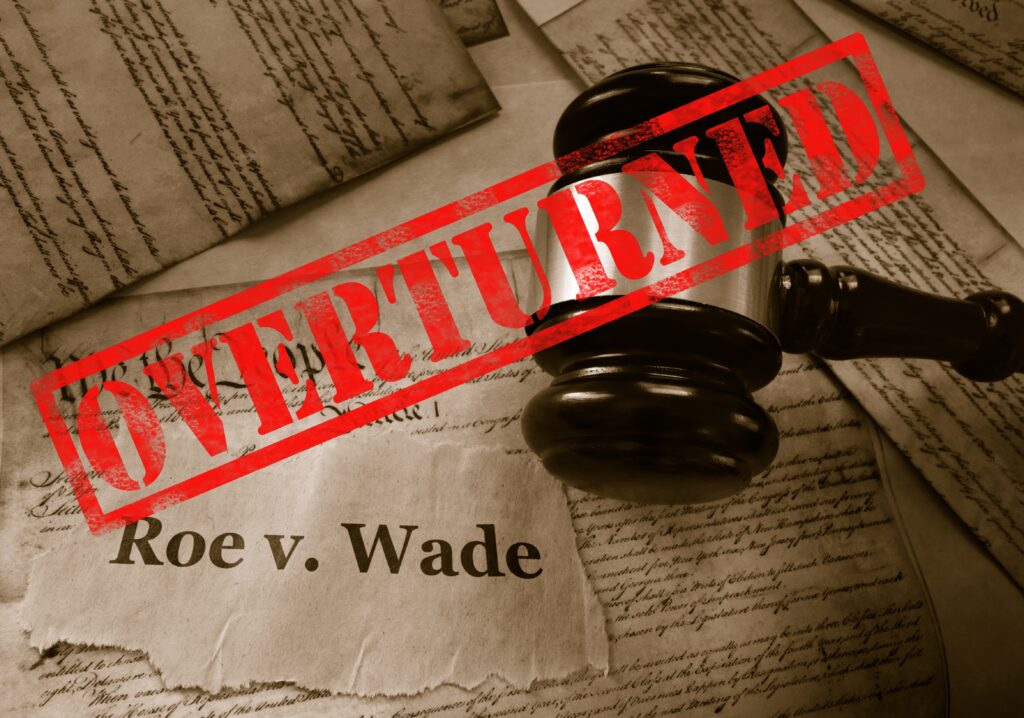The overturning of Roe v. Wade by a landmark Supreme Court decision one year ago has resulted in unintended consequences. With the decision’s overturn, the abortion debate has taken on a new dynamic, leading to a complex and evolving abortion stance post-Roe. Abortion opponents are now at odds with public opinion and facing political challenges.
According to a recent USA TODAY/Suffolk University poll, one in four Americans have become more supportive of abortion rights due to the state efforts that followed the decision, imposing strict limitations on abortion access.
The Dobbs decision, which eliminated abortion as a constitutionally protected right, initially pleased the anti-abortion movement. However, its aftermath has led to a surge in support for legal abortion, reaching historic highs and reshaping abortion stance post-Roe, the long-standing political debate on this contentious issue.
Tanya Goodpasture, a 53-year-old resident of Independence, Missouri, expressed her views during a follow-up interview after participating in the poll. As a Republican who voted for Donald Trump in 2020, she voiced concerns about abortion, particularly when a fetus’ heartbeat becomes detectable. However, she also emphasized the importance of personal choice and dealing with the consequences.
Among those whose stance on abortion has changed in the past year, nearly four out of five individuals (23% compared to 6%) reported becoming more supportive of legal abortion, rather than less supportive. This shift is evident across various demographics, with more women than men, more Democrats than Republicans, and more young voters than seniors expressing increased support for abortion rights. Notably, this change is particularly pronounced among Black respondents, with 32% indicating increased support for abortion access over the past year.
Independent women, a critical swing group in elections, also revealed a significant shift in their views, with 28% reporting increased support for abortion rights compared to 5% who became less supportive.
The nationwide poll involved 1,000 registered voters and was conducted via landline and cellphone from June 5 to 9. The margin of error for the poll is approximately 3.1 percentage points.
Opposition to the decision to overturn Roe v. Wade was strong among those surveyed, with nearly two-thirds (58% to 30%) expressing their disagreement.
Where Does the Abortion Issue Rank in the 2024 Election?
In the upcoming 2024 election, Americans have assigned different priorities to various issues, with abortion not topping the list. According to their rankings, inflation took the first position, followed by immigration, threats to democracy, and gun control. Abortion and education were tied for fifth place.
Nevertheless, more than three out of four Americans stated that abortion would still be an important factor influencing their vote, with 20% considering it the single most important issue.
These sentiments cut across both sides of the abortion debate.
Sarah Foust, a 37-year-old preschool teacher from Myrtle Beach, S.C., expressed her perspective as a Republican, advocating for a complete ban on abortions. “The first thing that the federal government should do is protect life,” she stated, referring to the military as well as the most vulnerable population, unborn children.
On the other hand, Jamie Nassehi, a 63-year-old builder and Democrat from Silver Spring, Maryland, shared that access to abortion has become a more significant issue for him following the Supreme Court ruling. He criticized the criminalization of a practice that had been a precedent for half a century. He also expressed concern about the influence of the religious right and a more conservative majority on the high court, cautioning against forcing their views on the majority of Americans.
The majority of Americans (80%-14%) strongly oppose the next objective pursued by many anti-abortion activists: enacting a federal law banning abortion nationwide. This opposition includes 65% of Republicans and 83% of independents who have taken abortion stance post-Roe.
In contrast, a federal law ensuring access to abortion is supported by 53% of those surveyed, while 39% opposed it.
David Paleologos, the director of Suffolk University’s Political Research Center, stated, “When 80% of Democrats and 53% of independents want Congress to pass a law ensuring nationwide access to abortion, you get the picture here.” He further highlighted that among the crucial independent-voter demographic, 63% of women support a national law, and even 23% of Republican men and women are in favor of it.
Since the Dobbs decision in June 2022, abortion has become inaccessible in 14 states, while courts have blocked the enforcement of bans in several others, as reported by the Guttmacher Institute, an organization tracking reproductive issues. Some states have implemented new bans through legislative action, and pre-Roe laws have been reinstated in other states.
States such as Georgia have enforced bans at six weeks of pregnancy, Nebraska at 12 weeks, and Arizona and Florida at 15 weeks. Florida Governor Ron DeSantis has signed a ban at six weeks, pending state court decision. North Carolina has also passed a 12-week ban, set to take effect on July 1st.

